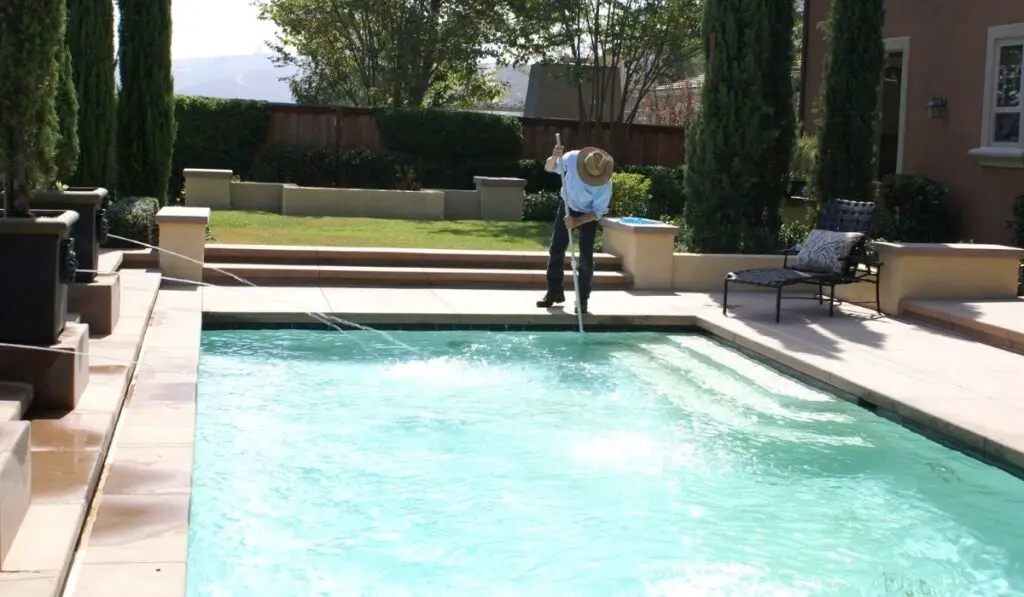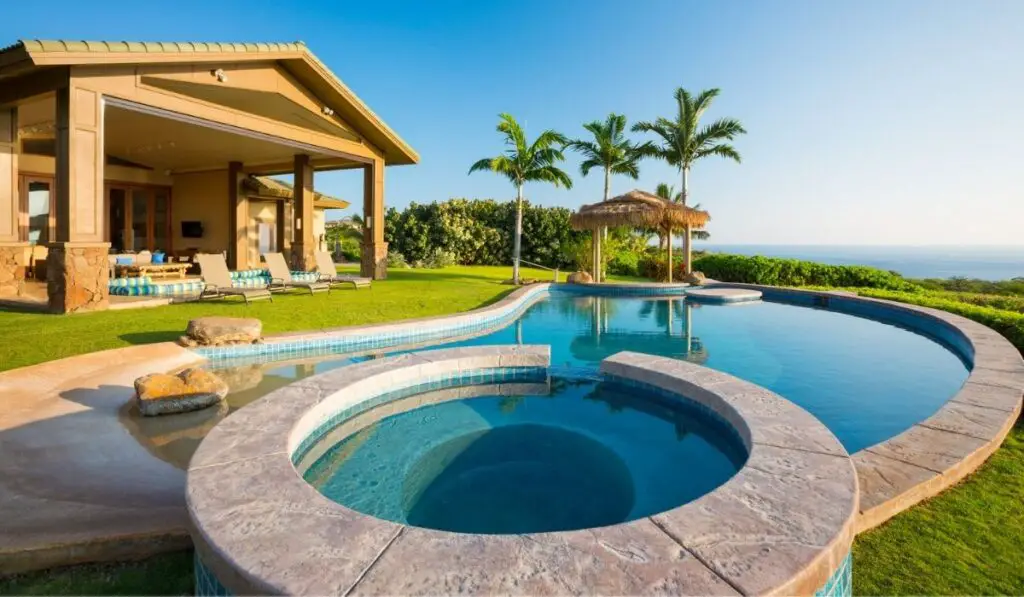If you’re looking for a quick way to fill your pool and you only have access to soft water, you might be wondering if that’s okay to use. Pool equipment and the chemicals in the water can be sensitive, so it’s essential you research anything you’re considering adding to the pool.
It’s safe to add soft water to your pool, but it shouldn’t be used to completely fill it. Some hardness is needed. Without hardness, the water can leech calcium from the walls and damage pool equipment. The correct balance is necessary if you’re adding any soft water to your pool.
So, how do you find the right balance, and what’s okay to add to the pool? Let’s take a look at what soft water does to a pool and how much you can get away with having in there.
Can You Add Soft Water to a Pool?

It’s okay to add soft water to a pool, but you should never fill the whole thing with soft water and leave it at that. A pool needs a balanced environment to thrive, so there still has to be some hardness or you may end up with some serious problems on your hands.
Soft vs. Hard Water: What Are the Differences?
To understand why your pool needs a balance and why soft water can be a bit of a risky venture for your pool, it’s important to understand the differences between soft and hard water.
Hard water has excess calcium and magnesium. Soft water is free from these harsh chemicals. While that might sound like it makes soft water better for your pool, it’s not so simple. Soft water will actually take chemicals like calcium from the walls of the pool. Soft water will always try to balance itself.
Although hard water is good for a pool (unless it’s too hard), it’s not good for a lot of other things. Using hard water to shower or bathe can dry out your hair and skin, and even cause rashes.
It can also damage the pipes as it flows through, since the excess chemicals it’s picked up can be very corrosive to the material.
It can also leave a lot of streaks behind on your shower and other places, and although they easily come off with some elbow grease, you’ll have to spend a lot of time cleaning.
Soft water tends to be better for regular household purposes where a pool isn’t involved. It’s especially good in cold weather to combat the dryness that often comes with it.
Can You Put Water Softener in a Pool?
If you’re looking to make the water in your pool a little softer then yes, you can add water softener (on Amazon) to it. Too much hard water in your pool can cause corrosion and a white substance on surfaces known as ‘scaling.’
Just as a pool filled with the softest water available doesn’t make for a good system, neither does hard water, and you will have to balance it out on occasion.
You may find that a household water softener isn’t enough, depending on the hardness of the water, so if it isn’t, search for large blocks of softening salt and they should do the trick. Be conservative with your measurements at first. You don’t want to overdo it.
Add a little bit at a time until you get a better feel for what the water needs. This is especially true if adding the large bags of salt — so keep testing as you add more. You can buy water hardness test trips (on Amazon) and use them frequently.
What Happens if Your Pool Water Is Too Soft?

Although soft water might sound like it’s easier on your system than hard water, this isn’t the case. Pool water that’s too soft tries to balance itself by stripping the chemicals from the walls and taking them into the water, which can quickly cause damage to the walls. It can dissolve very hard surfaces like concrete and plaster.
Furthermore, it’s corrosive to metal. That means there’s a high chance of it damaging your pool equipment, which can be very expensive to fix, and that’s why you need to stay on top of the balance.
Pool pumps and copper heat exchangers are particularly vulnerable to this damage, but they’re not the only vulnerable items. Even metal rails that go under the water to assist people on the staircase could be affected by water that’s too soft.
People also often wonder if soft water is corrosive to vinyl liners or if it’s just the concrete that it tends to attack. The truth is that soft water doesn’t discriminate. It will indeed try to suck minerals from vinyl liners too, so regardless of what kind of pool you have, you don’t want the water to be too soft or you’ll end up paying for it later.
